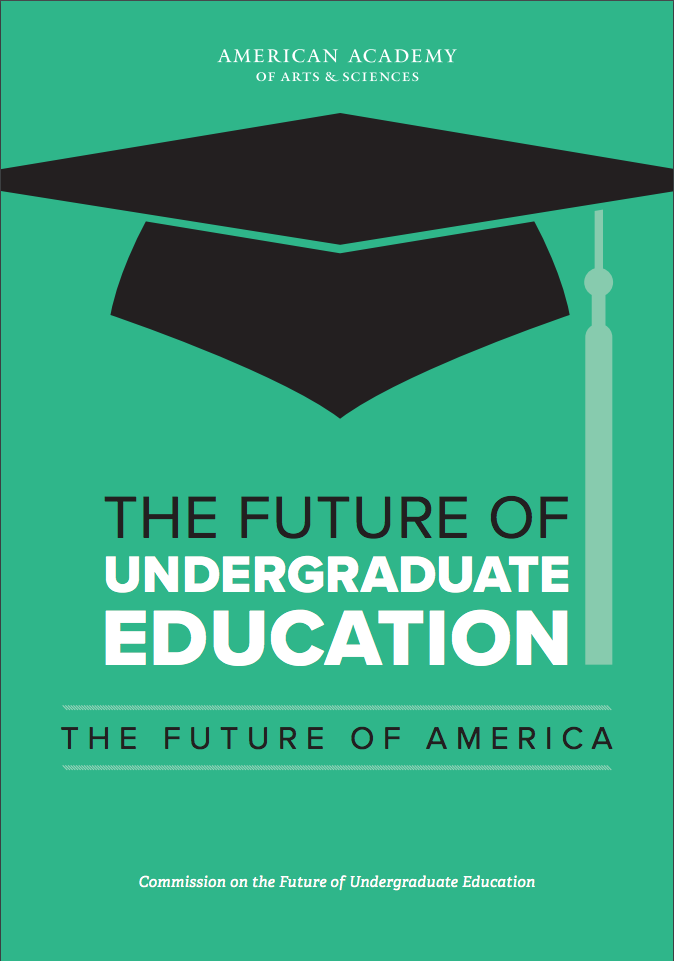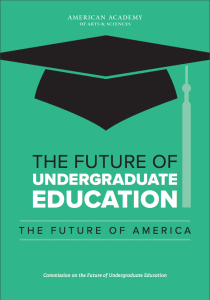
The Future of Undergraduate Education
“Institutions need to devote far more attention to and support for the quality of teaching and the teaching workforce and become more purposeful, effective, and efficient—reengineering their systems to focus on student completion,” says the American Academy of Arts & Sciences in its new report, The Future of Undergraduate Education, The Future of America.
This important publication embraces higher education’s responsibility to ensure that all college students receive the education they require to be successful in the 21st century. The Academy’s esteemed Commission calls for:
- high-quality educational experiences for all students,
- increased completion rates and reduced inequities among student populations, and
- improved affordability of an undergraduate education.
Effective teaching is critical to creating high-quality educational experiences and improving completion rates, as “the richness and rigor of undergraduate learning depends upon the quality of instruction being offered.” According to the Commission,
“The primary determinant of a quality education is the teaching and learning relationship between faculty and students. Effective student/faculty interactions are correlated with increased retention and completion rates, better grades and standardized test scores, and higher career and graduate school aspirations. Quite simply, students learn more and fail less when faculty members consult and utilize a large and growing body of research about effective teaching methods and make connections with students.”
But good teaching is often “undervalued.” The Commission notes that “faculty are rarely trained, selected, and assessed as teachers, and their effectiveness as instructors is rarely recognized or rewarded.” The report calls for increased attention “to elevate the importance of good teaching,” to regard teaching “as a central skill to be developed and supported,” and to increase professional development opportunities for graduate students through full-time faculty:
“To meet these new requirements—to pursue research-based teaching methodologies and to facilitate open dialogue in the classroom—college faculty may need to conceive of their roles in fundamentally new ways. The transformation of a teaching workforce rooted in disciplinary expertise to include pedagogical expertise will not be easy. Emerging research on the science of learning cannot simply be disseminated with the hope that doing so will improve outcomes. The research needs to be reinforced by new professional development opportunities at every level, including ‘preservice preparation’—in which pedagogy becomes a significant component of graduate training— and ‘in-service’ professional development providing ongoing evaluation and support.”
The Academy’s unalloyed support for quality teaching joins the chorus of voices from the Educational Testing Service, the Association of American Universities, Derek Bok, president emeritus of Harvard University, and others.
ACUE commends our partner colleges and universities who are also on the leading edge of this work. Nationwide, the transformation that has occurred in our workplaces and in society demands a commensurate transformation in higher education, and ACUE is honored to be a part of this important change.


